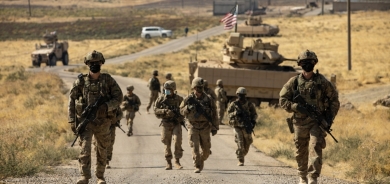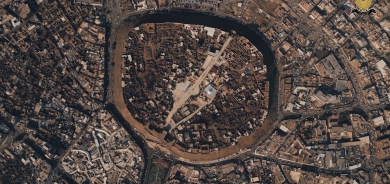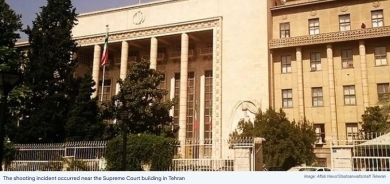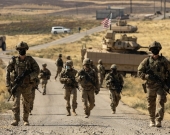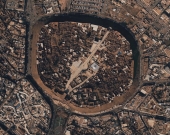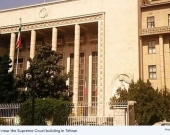South Sudan rejects call to free rebels to help end fighting

(Reuters) - South Sudan rejected rebel calls for an immediate release of detainees after the two sides met briefly for the first time on Tuesday seeking to end fighting that has left the world's newest state on the brink of civil war.
"They are destroying the whole process," Yohanis Musa Pauk, spokesman for the rebel delegation loyal to former vice president Riek Machar, told Reuters in Addis Ababa where the talks are being held.
"But we will not leave (the talks). We still have hope that they will come to their senses," he said after the government refused a key rebel demand for the release of 11 detained politicians allied to Machar.
Meetings in neighboring Ethiopia are aimed at brokering a ceasefire to halt three weeks of violence that has killed at least 1,000 people and driven 200,000 from their homes.
The fighting, often along ethnic faultlines, has pitted President Salva Kiir's SPLA government forces against the rebels loyal to Machar.
The talks opened on Tuesday but quickly took a break for consultations in Juba about the fate of the 11 detainees, arrested last year over an alleged coup plot. The rebels had initially demanded their release before the negotiations.
South Sudan's government chief negotiator, Nhial Deng Nhial, told a press conference in Juba that Kiir made it clear to a visiting team of east African envoys that the detainees would not be released immediately.
Kiir told the visitors that he would be happy to set the detainees free as long as the requisite legal processes have taken place, Nhial said, without elaborating.
Juba has maintained that the detainees will be investigated and those found culpable will face the due process of the law.
A diplomat close to the talks said the envoys were from the Intergovernmental Authority on Development (IGAD), a regional grouping of east African nations that initiated the talks.
The trio of envoys is led by Seyoum Mesfin, a former Ethiopian foreign minister, the diplomat said.
Tuesday's brief meeting between government and rebel delegations in Addis Ababa was the first face-to-face session, after a formal opening ceremony on Saturday, due to delays caused by haggling over the detainees.
The talks were due to resume when the IGAD envoys returned to Addis, which is expected to be Wednesday because they would spend the night in Juba.
The fighting is the worst in South Sudan since it won independence from Sudan in 2011 in a peace deal that ended one of Africa's longest civil wars. The slow pace of the peace talks has unnerved foreign powers, who worry that South Sudan could spiral into full-blown civil war.
EU CALLS FOR CEASEFIRE
Alexander Rondos, EU Special Representative for the Horn of Africa, said in Brussels that the humanitarian situation was extremely bad because there is very little access to the people who are now vulnerable. The fighting had also prevented humanitarian workers moving in to offer help.
"The international community is ready to move, the neighbors are ready to help, but they have got to come to an arrangement real fast on the ceasefire," Rondos told Reuters TV.
China, the biggest investor in South Sudan's oil industry through state-owned Chinese oil giants National Petroleum Corp (CNPC) and Sinopec, called on Monday for an immediate ceasefire. Beijing is concerned by the unrest that had forced the government to cut oil production by about a fifth.
The fighting forced CNPC to evacuate workers.
Sudan, which also has an economic interest in its southern neighbor's oil output, backed away on Tuesday from comments that South Sudan had requested talks on the deployment of a joint force to protect its oil-producing regions.
The comments had come after talks in Juba on Monday between Sudan's President Omar Hassan al-Bashir and Kiir.
Sudanese Foreign Minister Ali Karti said after Bashir's return to Khartoum on Monday that the two neighbors had discussed "the deployment of joint forces to secure oil areas in South Sudan". Juba had proposed the idea, he said.
But the foreign ministry in Khartoum issued a statement on Tuesday denying media reports saying that the matter had been discussed, according to the official Sudanese news agency SUNA.
The prospect of security cooperation between the two countries would represent an improvement in ties, after the civil war foes came close to conflict again in disputes over oil fees and the border in the early part of 2012.
All of landlocked South Sudan's oil is piped through its northern neighbor, providing vital hard currency in transit fees for Khartoum.
South Sudan's oil production fell by 45,000 barrels per day to 200,000 bpd after oilfields in its northern Unity state were shut down due to fighting. Upper Nile state is still pumping about 200,000 bpd, the government says.
Oil major BP estimates that South Sudan holds sub-Saharan Africa's third-largest reserves.
(Additional reporting by Adrian Croft and Reuters TV in Brussels,; Writing by James Macharia; Editing by Alister Doyle)


